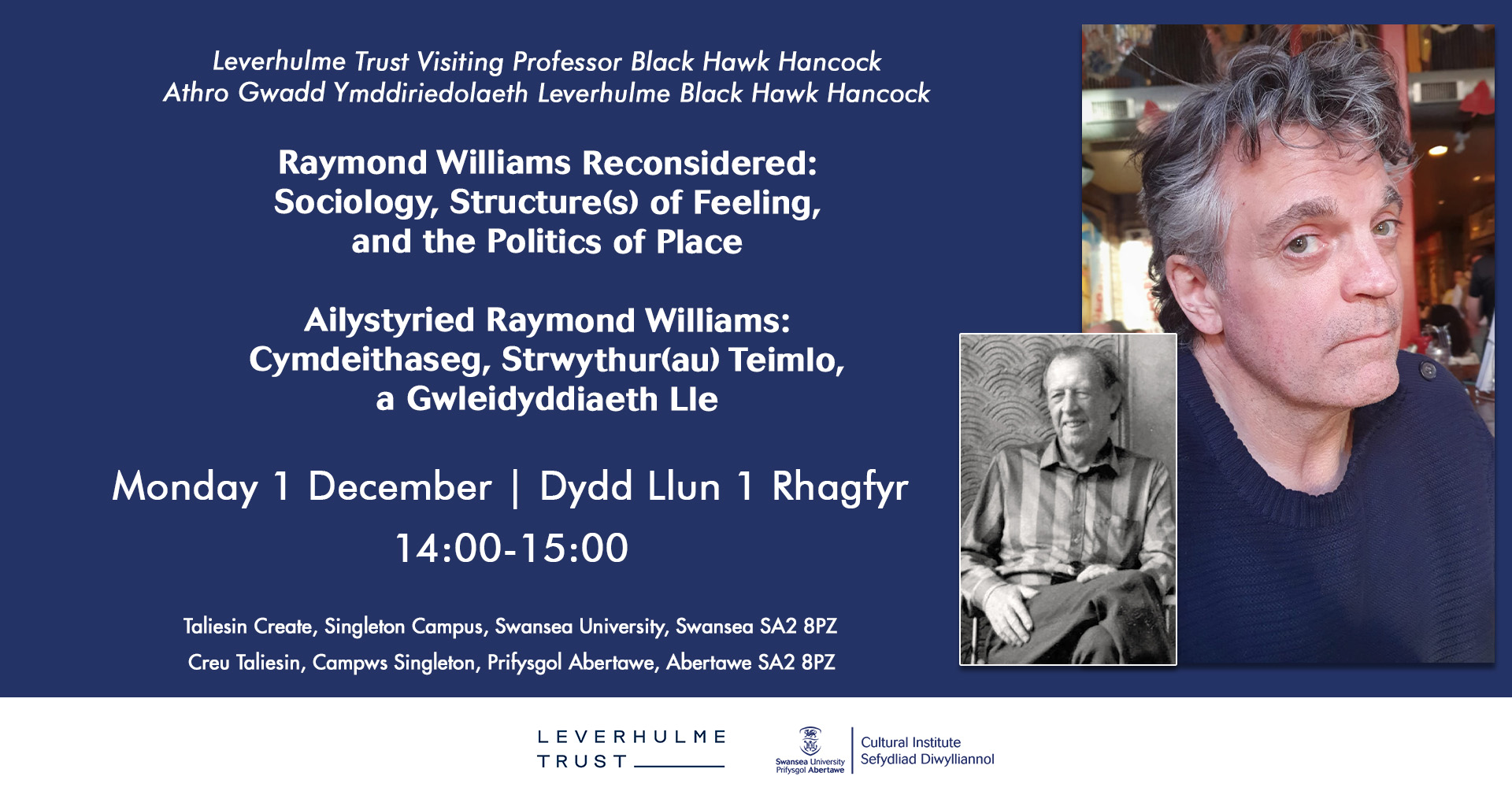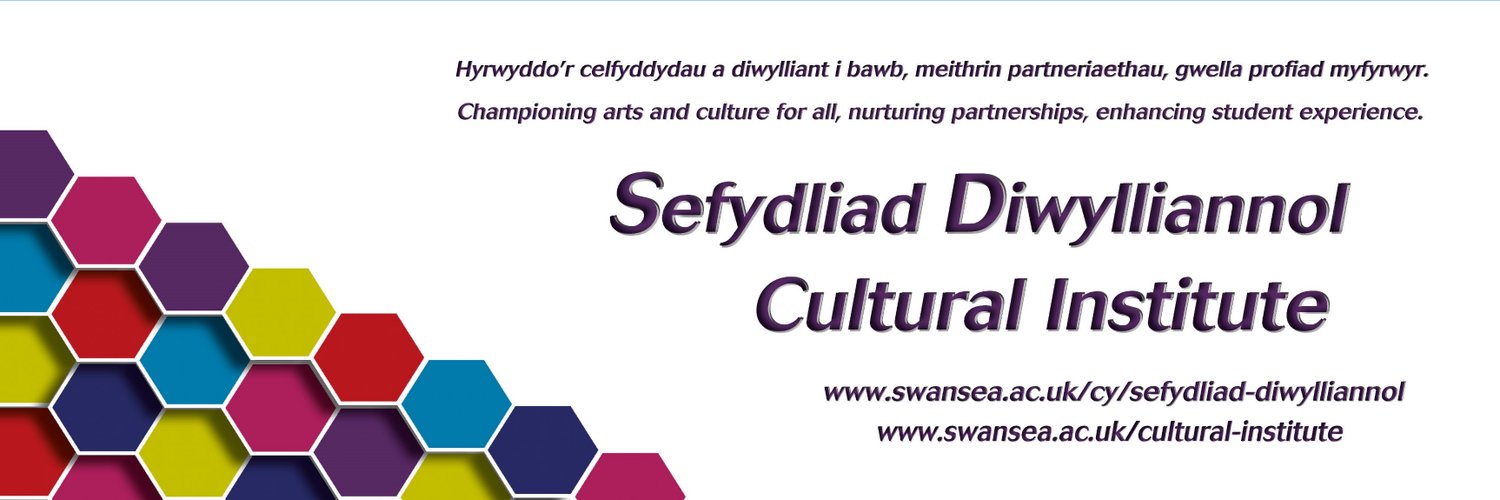
Registration is required
Register at: https://bit.ly/rwreconsidered

This event is part of the Sefydliad Diwylliannol - Cultural Institute series
Professor Black Hawk Hancock
Speaker's BiographyBlack Hawk Hancock is a Leverhulme Trust Visiting Professor. His work focuses on Culture, Theory, and Qualitative Methodology. He is the author of the ethnography 'American Allegory': Lindy Hop and the Racial Imagination (University of Chicago Press). He has also written new introductions to the 2nd editions of John Fiske’s books 'Power Plays, Power Works' (Routledge), and 'Media Matters' (Routledge). His articles engage theorists as diverse as Michel Foucault, Judith Butler, Erving Goffman, Jean Baudrillard, Jaques Derrida, and Georg Simmel, amongst others. His most recent book, co-authored with Roberta Garner, is 'Change and Disruption': Sociology of the Future (Routledge).
From: 1 Dec 2025, 2 p.m.To: 1 Dec 2025, 3 p.m.
Location: Taliesin Create, Swansea University, Singleton Park, SA2 8PZ, Swansea
Right-wing populism is undermining Liberal democracies in both the Unted States and Europe. The reactionary politics of this period, moreover, are very much a intertwined with the economic policies of the past thirty years. Systemic changes in employment and wages have generated socio-economic insecurities, while global migration has destabilized traditional conceptions of national identity. Raymond Williams speaks directly to these issues. The themes of capitalism, industrialization, and national identity run throughout his work where he chronicled the processes of deindustrialization and the regional responses to its effects. His approach to cultural analysis emphasized how feeling—the meaning, values, and practices lived and felt by those who are caught up in them—has a structure that pulls together people’s social experiences and articulates them in terms of shared outlooks and expressions that are manifested in “structure(s) of feeling.” From here, he theorized the kinds of “livelihood,” “bonding,” and “the politics of place” that were needed as strategies for cultivating “communities that hold” together in the face of fractious social spheres and the politics of everyday life. It is helpful, then, to reconsider Williams’s work, and what it has to say about the current moment and how we might address the crisis of democracy that we now confront.
Contact: Cultural Institute - Swansea University (Email: cultural-institute@swansea.ac.uk)
Website: https://bit.ly/rwreconsidered
Event created by: m.t.hughes
